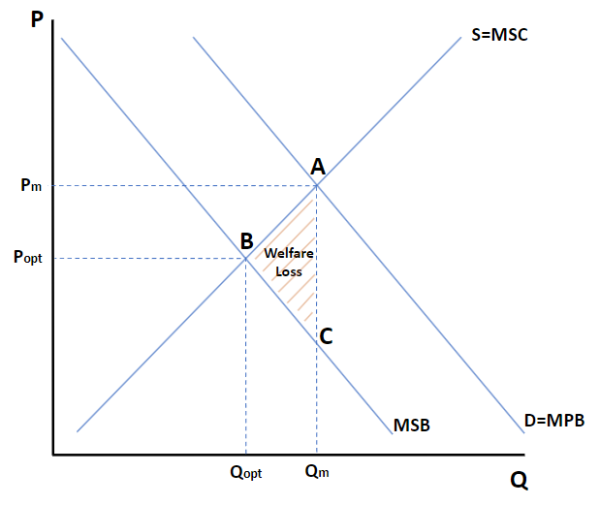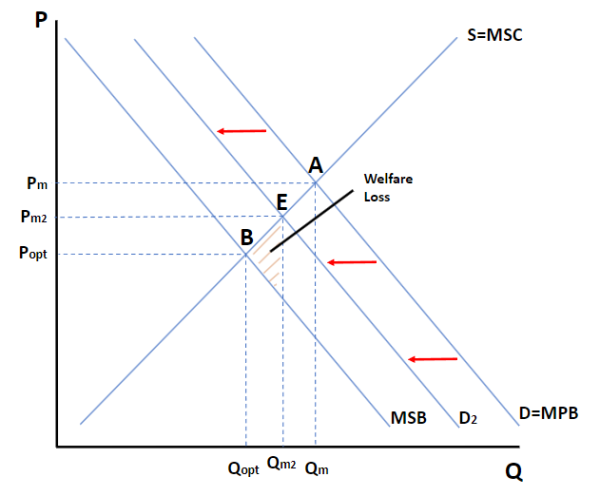About the author: Seventeen-year-old Mateusz Kolin entered the Future Economists Essay Competition 2024, and was runner-up, being highly commended by the panel of judges for his economic writing and understanding.
Mateusz answered: The UK Dasgupta Review of Economics and Biodiversity states that ‘Our unsustainable engagement with nature is endangering the prosperity of current and future generations’. What economic policies could Jersey introduce to protect and restore the natural environment?
Future Economists Essay Competition: Runner-Up A
Sustainability, one of the key economic concepts, is controlled long-term economic growth that does not have a bad impact on the environment. Its purpose is to meet the needs of the present generation without compromising the needs of future generations. Currently, one of the biggest problems in maintaining sustainability is excessive waste, that leads to environmental pollution. It is caused by overconsumption of goods and prevalence of single-use products. The most problematic waste is plastic, as it is non-biodegradable meaning it does not break down naturally and can persist in the ecosystem for hundreds of years, leading to long-term pollution. In addition to that, plastic contains many toxic chemicals which have a harmful impact on the environment.

Diagram 1 presents the negative externalities generated by overconsumption of plastic. The market equilibrium is A, at quantity demanded Qm. The marginal social cost (MSC) is equal to the marginal private benefit (MPB). However, this market operation is unsustainable, and the marginal social benefit (MSB) is smaller. The difference is the external cost to society, caused by harm to the environment in the form of air, water, and land pollution. The social optimum is at equilibrium B, where the market is sustainable and MSC=MSB. However, due to an overconsumption of plastic (Qm > Qopt), the market is unsustainable and there is a welfare loss marked in the region ABC. This means that there is a market failure, as the free market is not operating at the social optimum level.
A solution to reduce negative externalities is education of consumers. This would require organizing campaigns that would inform people about the bad impact of plastic on the environment, as well as people’s health. Studies have shown that microplastics can affect various systems in the human body, including the digestive, respiratory, endocrine, reproductive, and immune systems. Presentations could be organized in schools to raise awareness and encourage young people to reduce their usage of plastic products, such as plastic bottles and bags, along with less obvious goods such as clothing containing polyester or, surprisingly, chewing gum that contains a plastic called polyvinyl acetate.
Diagram 2:

Campaigns would reduce the demand for plastic products, shifting the demand curve to the left. The new market equilibrium would be E, at quantity demanded Qm2 which is smaller than Qm, meaning that the overconsumption would be reduced, and external costs would be smaller, resulting in smaller welfare loss. For a campaign to be effective, the message would need to be constantly repeated, so it would require a long-term investment by the government. That involves an opportunity cost, as more money could be spent on improving waste management. However, in the long-term raising awareness will reduce the excessive waste of plastic, reducing the external costs, so it will pay off.
Unfortunately, plastic consumption cannot be minimized very significantly, as it has become an inherent component of our life. Therefore, it is important to ensure a high effectiveness of recycling. Plastic recycling reduces the need to produce new plastic by giving the material a chance to have a new life, keeping it in use and out of the environment. Currently, Jersey offers household recycling collection in most parishes and an option of disposing of recyclable waste at recycling centers. However, statistics show that this is not enough. According to gov.je, the recycling rate in Jersey in 2020 was only 27%. That is the amount of waste recycled divided by the total amount of waste. Bailiwick Express claims that the household recycling rate in Jersey in 2023 was still about 30%. For comparison, the recycling rate in the UK in 2022/23 according to gov.uk was 43.3%. The European Environment Agency states that the recycling rate of municipal waste in the EU is 49% and has a target to reach 60% by 2030. Finally, in Guernsey the recycling rate in 2023 is 68% and the target by 2030 is 70%. These statistics show how far behind Jersey is in recycling. In addition, only around 1.5% of the recycled material in Jersey is plastic. Jersey requires a substantial change in recycling policy that would significantly increase our recycling rate.
Jersey could introduce a regulation that would obligate people to recycle plastic from household usage or otherwise pay more for waste collection. Residents of the island would have an option to declare that they will not be recycling and choose to pay a higher price for waste collection. Those who have not chosen the option of paying the higher price would have to segregate their rubbish, so that their plastic waste is in separate special bags and prepared for regular collections, ideally twice a month in every parish. People who would not comply with the rules may be subject to fines.
The regulation would be effective, as people would be compelled to recycle to avoid fines, so much more plastic would be recycled. Government revenue could increase from people who decide to pay more for non-recycled waste. However, implementing those regulations would be costly for the government, as it would require more household recycling collections and expenditures of shipping recycled plastic. This would entail an opportunity cost, which would be a disadvantage in the short term. In the long term, the regulations would reduce the negative externalities caused by excess plastic waste, so they would be beneficial for society. Similar rules are in force in some EU countries, such as Italy, Germany, or Poland, where it is mandatory to segregate waste in households.
The regulation is a solution that guarantees a rise in the recycling rate in Jersey, which is necessary to protect the natural environment. It would reduce the external costs to society caused by the harmful impacts of plastic waste. Regulations should be introduced along with campaigns, that would raise awareness of the bad impact plastic has on the environment and people’s health, encouraging to reduce plastic usage and convey the importance of recycling. These actions will significantly enhance Jersey’s sustainability, making it a more environment-friendly island.
References
- https://www.bailiwickexpress.com/jsy/news/our-throwaway-society-recycling-worth-effort-and-cost/
- https://www.gov.uk/government/statistics/local-authority-collected-waste-management-annual-results
- https://www.eea.europa.eu/en/topics/in-depth/waste-and-recycling
- https://www.bailiwickexpress.com/news-ge/household-clear-out-driving-down-recycling-rates/
- https://pmc.ncbi.nlm.nih.gov/articles/PMC10151227/
 blog.gov.je
blog.gov.je